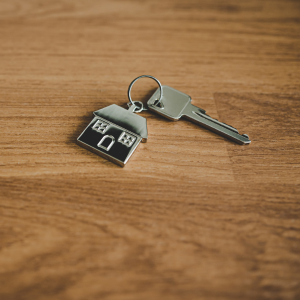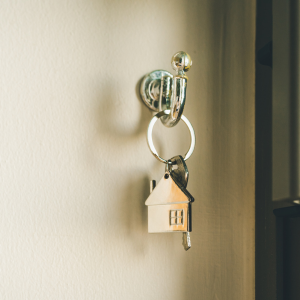
Key Considerations Before Listing Your Minnesota Rental Property for Sale
There are a lot of things you need to think about before you try to sell a rental property in Minnesota’s competitive real estate market. It is important to know what renters’ rights are under Minnesota law because these laws affect when and how you can show the property.
Make sure you look over the current leases to see if the renters are on month-to-month or fixed-term contracts. This will affect how you try to sell the property. It’s important to keep in touch with tenants. Let them know what you plan to do, and work with them to schedule viewings that respect their privacy while making the property more appealing to possible buyers.
Think about when you want to sell your home based on the Minnesota market and whether there are any repairs or changes that could make the home more valuable and appealing. Also, make sure that listings say if the property is vacant or occupied by a tenant so that buyers who want to take over current lease agreements know what to expect.
Talking to a real estate agent who knows the rental market in Minnesota can give you useful information and ensure you follow all the legal requirements during the sales process.
Thinking about selling your Minnesota rental property? Discover how Henry Home Buyer buys homes quickly and hassle-free while helping you navigate tenant laws, market timing, and other key steps to get the best value for your property.
Timing the Market: When to Sell Your Rental Property in Minnesota for Maximum Profit
When you sell a rental property in Minnesota, it is very important to make the most money in the real estate market. Knowing about yearly demand, market trends in your area, and economic indicators can have a big effect on your choice.

People who want to buy a home in Minnesota often show more interest in the spring and summer, when school plans allow families to move. But keeping an eye on economic indicators like mortgage rates and job rates can also help you figure out the best times to sell.
Looking at market info for Minnesota’s cities and neighborhoods will also help you figure out when property values are at their highest. Landlords should think about lease agreements with renters because evicting or negotiating with tenants could change their timing plan.
Making sure the tenants are cooperative and keeping the property in good shape can make it more appealing to people who are looking for easy investments. By carefully putting these things together, you can make your rental property more competitive in Minnesota’s changing real estate market and make the most money possible.
Understanding Local Market Trends Affecting the Sale of Rental Homes in Minneapolis
Anyone in Minneapolis who wants to sell rental homes with tenants needs to know how the local market is changing. The real estate market in Minneapolis has changed a lot, mostly because of changes in the economy and the population.
Rising population levels in cities have caused more people to want to live in them, which has caused property prices to go up and down. Investors need to know about current vacancy rates and rental rates, as these can affect how appealing rental houses are to people who want to buy them.
Law changes in Minnesota that affect property taxes and tenant rights can also have an effect on the market, so it’s important for sellers to stay up to date on any legal changes. Seasonal changes also play a part. Spring and summer are usually better times to sell because there are more buyers around during these months.
Sellers can price their homes more strategically and effectively explain their value proposition to interested buyers in the competitive Minneapolis real estate market if they understand these local quirks.
Calculating Return on Investment: Is Now the Right Time to Sell Your Minnesota Rentals?
In Minnesota’s real estate market, figuring out the return on investment (ROI) is important for people who want to sell rental homes that already have tenants. You can figure out how profitable your property is by comparing its current market value to the amount you invested in it in the first place.
Think about the rental income, upkeep costs, and property fees that are specific to Minnesota. Take into account the desire for homes in the area and recent changes in Minnesota’s real estate market. These things have a big effect on property values.
Understanding renter lease agreements and possible vacancy rates can also change how you calculate ROI. By carefully looking at these factors, property owners can make smart choices about how to get the best results in Minnesota’s constantly changing real estate market.
Essential Renovations to Boost the Value of Your Minnesota Rental Property
In Minnesota’s competitive rental market, making necessary repairs can make a big difference in how much your property is worth. Start by improving the kitchen and bathrooms, as these are the places that potential buyers will see first.
Installing energy-efficient appliances and fixtures is a good way to attract environmentally friendly renters, who are becoming more common in Minnesota. Improving your home’s curb appeal is very important. Invest in gardening changes that show off its exterior charm, especially in the spring and summer.
Quality flooring updates, like installing hardwood or long-lasting laminate, raise the value of a home right away and draw renters who want a modern look with practicality. To meet Minnesota’s harsh winter requirements, make sure that all heating systems are up-to-date and working well.
Also, new paint in neutral colors makes the area feel warm and inviting, and it lets potential buyers imagine their own style in it. Focus on these smart updates to effectively raise the market value of your rental home in Minnesota’s changing housing market.
Ready to sell your Minnesota rental property? Making essential updates like modern kitchens, energy-efficient upgrades, and improved curb appeal can boost your home’s value and attract serious buyers fast. When you’re ready to make the move, contact Henry Home Buyer for a seamless sale.
How to Prepare Your Minnesota Rental Property for a Successful Sale
To get your Minnesota rental property ready to sell, you need to plan ahead and pay close attention to the details. First, make sure the house is in great shape by fixing any problems or doing any care that needs to be done. Showing a well-kept house can get buyers very interested.
As a landlord in Minnesota, it’s important to be clear with your renters about the sale process and respect their rights. You should also schedule showings in a way that causes them the least amount of trouble. To make a good first impression, you might want to improve your home’s street appeal by adding new plants and painting the outside.
Inside, clear out the rooms and think about arranging the space to show off the property’s full potential—staging can make a huge difference in how appealing the home looks to buyers. Also, make sure you have all the rental agreements, repair records, and financial statements on hand to be transparent with buyers and build trust. And hey, did you know Minnesota is known as the “Land of 10,000 Lakes”—but it actually has more than 11,800 of them? It’s also home to the nation’s largest mall (Mall of America) and the headwaters of the Mississippi River. A few fun facts like these can help highlight why owning property here is such a great opportunity!
Having a real estate agent who knows how to sell rental homes in Minnesota and is experienced in that market can help you make good decisions.
Legal Requirements for Selling Investment Properties in Minnesota
In Minnesota, it’s important to carefully follow the legal requirements when selling investment properties with renters to make sure the deal goes smoothly. During the sale process, landlords must follow state rules that protect the rights of tenants.
First, sellers must give renters proper notice of the sale. This is usually done in writing, outlining any changes in who owns the property. Furthermore, leases are still legally binding after the property is sold, so the new owners must follow through on any rental deals unless the terms of the sale say otherwise.
Sellers need to read these papers carefully to understand their responsibilities, such as the length of the lease and the terms of the rent. Landlords should also be aware of certain disclosure rules set by Minnesota law. These rules require landlords to be honest about the state of the property and the rights of tenants.
If you don’t follow these law requirements, there could be problems or disagreements during the closing process. Talking to a real estate lawyer who knows Minnesota’s rules is a good idea to make sure that all legal issues are taken care of properly when selling rental homes.
Understanding the Tax Implications of Selling Rental Property in Minnesota
When selling rental property in Minnesota, understanding the tax implications is crucial for any property owner. The sale of a rental property typically triggers capital gains tax, which is calculated based on the property’s adjusted cost basis and the selling price.

In Minnesota, property owners must consider both federal and state tax obligations. At the federal level, long-term capital gains tax rates apply if the property has been held for more than a year.
Additionally, depreciation recapture can significantly impact taxes by taxing previously deducted depreciation at a higher rate. Minnesota imposes its own state capital gains tax, which can affect overall profitability from the sale.
It’s essential to account for prorated property taxes and any outstanding special assessments that may also come into play during a transaction involving tenants. Understanding these factors helps in accurately estimating potential tax liabilities and ensuring compliance with both IRS regulations and Minnesota’s Department of Revenue requirements when selling rental properties in this dynamic real estate market.
Thinking about selling your Minnesota rental property? Understanding the tax implications can help you maximize profits and avoid costly surprises. If you’re ready for a stress-free option, we buy houses in Minnesota and its other cities.
Navigating Capital Gains Taxes When Selling a Rental Property in Minnesota
It’s important to know how capital gains taxes might affect the sale of a rental property in Minnesota, especially if the renters are still living there. Capital gains tax is charged in Minnesota, as in other states, on the money made when you sell investment properties like rented homes.
This means that you must correctly figure out your cost basis by taking into account things like the original purchase price, any changes made, and the amount of depreciation claimed. Capital gains are taxed by both the federal government and Minnesota. The rates can be different depending on your income and how you file your taxes.
Property owners may want to look into methods like a 1031 exchange, which lets them defer taxes by investing the money from the sale of one property into another qualifying property. It is very important to know about any state-specific rules or exemptions that apply to real estate deals.
Talking to a tax expert who knows the ins and outs of Minnesota’s real estate market can help you get the best financial results when dealing with these complicated tax issues during the sale of your home.
Using 1031 Exchanges When Selling and Buying Investment Properties in Minnesota
A 1031 exchange can be a smart way to avoid paying capital gains taxes when selling rental properties in Minnesota that already have renters. The money can then be used to buy more rental properties. A 1031 exchange, named after Section 1031 of the Internal Revenue Code, lets investors sell an investment property and buy a similar property without having to pay taxes on the new property right away.
This is especially helpful in Minnesota’s real estate market, where owners want to make the most money and grow their holdings. For a 1031 exchange to go smoothly, sellers must carefully follow IRS rules, which say they must find possible replacement properties within 45 days and complete the deal within 180 days.
By using this tax-deferral approach, investors can quickly move from one asset that makes money to another while keeping tenants in place and causing as little financial trouble as possible. This method not only helps build wealth over time, but it also fits with how quickly Minnesota’s real estate market changes.
How to Handle Tenant Situations During the Sale of a Rented Home in Minnesota
In Minnesota, dealing with tenants during the sale of a rented home takes careful thought and following of state laws. Follow Minnesota’s landlord-tenant laws and be honest with your renters about your plans to sell. Also, make sure you give them enough notice.
Cooperation is important, and giving people rewards for keeping the house in good shape during showings can be helpful. Sellers should respect the rights of renters by showing the property at times that are convenient for them and giving them enough time to prepare before entering.
It is very important to understand lease agreements because when a property changes hands, the new owners usually have to follow the rules of the lease until the end. In some situations, negotiating with tenants to end the lease early or offer moving help could make the change easier.
Making sure that all contacts with tenants are written down can help avoid disagreements and keep the selling process going smoothly in Minnesota’s real estate market.
Evaluating Offers: Negotiation Tips for Selling a Rental Home in Minnesota
In Minnesota’s real estate market, if you want to get the most money for your rental property while still having tenants, you need to be able to evaluate deals strategically. It’s important to know how the local market works; sellers should know about Minnesota’s present property values and trends.

It is important to look at the terms of each offer, especially the buyer conditions, suggested timelines, and financing terms. Sellers need to think about how these things affect their financial goals as well as their deals with tenants.
Being honest with potential buyers about the current lease agreements can make the talks go more smoothly. When talking about your rental property, pointing out its good points, like its location and the fact that the tenants are reliable, can help it stand out.
It is easier to get a good deal if you are ready to negotiate on price or ending terms while staying firm on important conditions. Talking to a local real estate person who knows Minnesota’s rules will make sure you follow them and give you useful information on how to negotiate in this market.
Financing Options for Buyers of Investment Properties in Minnesota
When thinking about buying investment properties in Minnesota, especially ones that already have renters, it’s important to know what kinds of loans are out there. Potential buyers can look into conventional mortgage loans. These loans are often used to buy rental properties because they have low interest rates and a variety of options.
Investors may also want to look into Federal Housing Administration (FHA) loans if they meet certain requirements. However, these loans are usually for people who plan to live in the property themselves. Portfolio loans are a flexible option for experienced real estate owners because they can be used to finance more than one property.
In Minnesota’s strong real estate market, commercial loans are another good choice for people who want to buy bigger multifamily units or commercial spaces. Hard money lenders offer short-term options for buyers who need to close quickly or who don’t have perfect credit.
It’s important to look at the specifics of each financing option, like the down payment needed and the interest rate, to find the best one for buying rental properties that already have renters.
How Much Notice Does a Landlord Have to Give When Selling the Property in Minnesota?
Landlords in Minnesota who want to sell a home with tenants must know what kind of notice they need to give. In the real estate market in Minnesota, landlords have certain legal duties that they must follow to make sure the move goes smoothly.
When a landlord decides to sell a rental property, they usually have to give the renters enough notice about showings and the sale process. Minnesota law doesn’t say exactly when landlords have to tell tenants about a property sale, but it is important for landlords to look over current lease agreements for any clauses that deal with property sales.
Also, state law says that landlords must give renters at least 24 hours’ notice before showings or inspections happen while the house is being sold. This method not only protects the rights of tenants, but it also helps landlords and tenants keep a good relationship while the house is being sold.
Making sure they follow these notice rules and talk to tenants clearly can help landlords sell rental homes in Minnesota’s tough real estate market while also following tenant laws.
How to Avoid Capital Gains on Sale of Rental House?
One of the most important things to think about when selling a rental property in Minnesota is how to avoid paying capital gains taxes on the sale. Property owners can use a number of tactics to lower or delay paying capital gains taxes.
A 1031 exchange is a popular way to do this. It lets investors defer capital gains by buying a similar property within a certain amount of time with the money from the sale. One more way to lower taxable gains is to turn the rental property into a main residence. After living in the property for at least two years, sellers can use the homeowner exclusion.
Also, taxpayers should keep careful records of any changes they make to the property over time. The costs of these changes can be added to the property’s base, which could lower the taxable gain. Talking to a tax advisor or real estate lawyer who knows Minnesota’s tax rules can also help you figure out how to handle capital gains when you sell rental properties that still have tenants.
Looking to sell your Minnesota rental property? Learn innovative strategies to avoid or reduce capital gains taxes to keep more profit in your pocket. When you’re ready for a quick, hassle-free sale, Owatonna cash buyers and nearby cities in Minnesota are here to help.
How Much Tax Will I Pay on the Sale of a Rental Property?
If you want to get the most out of your investment when you sell a rental property in Minnesota, you need to know how the taxes will affect you. The capital gains tax is the main tax issue because it affects any money you make when you sell your rental property. When you sell a house in Minnesota, you take the adjusted basis away from the sale price to find the capital gains.
Usually, the adjusted basis is the original purchase price plus any changes made and minus the amount of depreciation claimed during ownership. Also, the federal capital gains tax rates range from 0% to 20%, based on how much money you make. Capital gains are also taxed by the state of Minnesota at rates that range from 35% to 85%, based on your taxable income.
It’s also possible that you’ve kept the property for longer than a year. If so, it’s a long-term capital gain, which means it might be taxed at a lower rate than a short-term gain, which is for properties kept for less than a year. If you deducted any depreciation while you owned the property, you may have to pay recapture taxes on that amount. This can change your total tax liability when you sell the property.
Talking to a real estate tax expert or accountant who knows Minnesota’s rules can help you make sure you’re following them and get the most money after taxes when you sell rental properties that already have renters.
Do I Have to Report the Sale of Rental Property to the IRS?
It is very important to know your tax responsibilities when selling rental properties in Minnesota, especially when it comes to filing with the IRS. Yes, you need to tell the IRS about the sale of your rental property because it is a taxable event.
On your federal tax return, you need to list the capital gains, which are the money you made from the sale. In addition, if the value of your rental property has gone down over time, you may need to report this loss as income.
It’s important to get these numbers right so that you can follow IRS rules and avoid possible fines. Talking to a tax expert who knows the Minnesota real estate market can help you make sure you meet all the reporting requirements and get the most out of any tax breaks you may be able to get when you sell rental properties that already have renters.
Have questions or ready to sell? Reach out at (612) 430-8822 for a no-obligation offer and take the first step today.
Helpful Minnesota Blog Articles
- Successfully Selling A House With Title Issues In Minnesota
- Essential Guide To Selling Your Rental Property In Minnesota
- Facts About Minnesota’s Unique Homes And Real Estate
- Is Minnesota A Safe Place To Buy A Home?
- Expert Minnesota Property Management
- How To Remove A Name From A House Deed In Minnesota
- Condemned House Requirements in Minnesota
- Can the Executor Change the Will in Minnesota?
- Way to Avoid Capital Gains Tax in Minnesota
- How Long After an Appraisal Can You Close in Minnesota

| LANDLORD AND TENANTS | TENANCIES | TENANCY | LEASE OR RENTAL AGREEMENT | LEASES OR RENTAL AGREEMENTS | STATE OF MINNESOTA |
| TAX CODE | SAINT PAUL | SAINT PAUL, MN | REALTOR | PAYMENTS | TENANTS’ RIGHTS |
| TENANTS RIGHTS | PROPERTY VALUATION | APPRAISALS |
